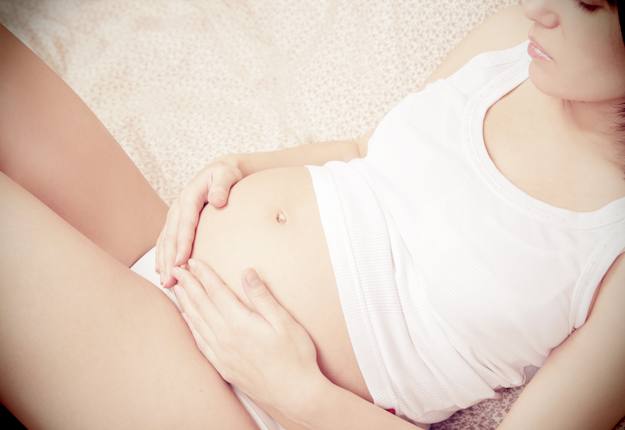Growing a baby brings multiple changes to your body. As the months go by, you’ll notice things shifting to cater for this new life inside you. Many new mums welcome some of these changes. Other body fluctuations, like swelling of your hands, face, feet, legs or ankles, not so much.
Body swelling caused by pregnancy, also known as oedema, is a common side effect. It’s caused by an increased pressure in your veins and excessive fluid retention in the body tissues and usually occurs around the fifth month. As your pregnancy progresses, so does the puffiness, which can last well into the third trimester. But don’t fret! Oedmea is one of the easiest symptoms of pregnancy to treat – and most of it is to do with diet and rest. If you’re feeling a little swollen, here are the best natural ways to reduce it:
1. Stay Well Hydrated and Rested
It seems like an obvious point, but busy mums-to-be need to be reminded. Drinking plenty of water and knowing when to put your feet up are small things that make a big impact. Regular intake of fluids helps to flush out old fluids. Sure, you’ll be running to the toilet a lot, but it’s worth it. Add some fresh lemon juice into your water too. This is a mild and safe way to quickly rid your system of excess water. You can also add cucumbers, which stimulate your kidneys to work more efficiently.
Standing up too long will only aggravate the swelling. Give yourself small breaks to sit down and put your feet up. Heat and overdoing it don’t mix well with pregnancy. Avoid staying stationary for too long (unless you’re laying down). And when you are resting, sleep on your left side with pillows to elevate legs to help.
2. Wear the Right Attire
Pregnant bodies need support. The value of compression stocking throughout a pregnancy cannot be denied. Both compression stocking and socks promote better circulation and reduce leg and ankle bloat. Every mum-to-be should have a pair handy – these Jobst compression stockings are fantastic!
Don’t fall into the trap of confusing tight stockings or compression ones though. Anything just ‘tight’ and not specifically designed for compression will restrict the blood flow and fluids in your body.
3. Eat Nutrients High in Potassium
Diet is extremely important through pregnancy and breastfeeding. Everything you digest, so does bub! Up the potassium by eating more vegetables, legumes, fruit, sweet potatoes, bananas, green beans and fish. Fruit, in particular is a great pregnancy snack. Not only are they rich in potassium, but they have all the vitamins and fibre to encourage good digestion and overall health.
There are many foods that contribute to oedema as well. Avoid too much sugar, fats and processed or pre-packaged foods. Whilst you’re adding extra potassium to your diet, increase the antioxidants too. Blueberries, cranberries and artichokes are good for you and the baby.
4. Salt Foods vs. Salt Baths
Salt is another ingredient you want to decrease throughout your pregnancy. Too much salt encourages the body to hold onto excess water, adding to the fluid build-up. Instead, increase the salt in the bath tub! Epsom salt baths assist in drawing out the fluid and help to leave you feeling relaxed and more comfortable. Add one cup to a warm bath and let yourself soak.
5. Exercise 20 Minutes a Day
Adding at least 20 minutes of gentle exercising to the day will ensure your blood circulation stays healthy. Whether it’s walking, gentle yoga or stretches and light weights, keeping fluids circulating means they have less of a tendency to settle in your legs, ankles and feet.
Did you know, that pregnancy swelling can actually be good for you?
It may feel or look sore, but excessive fluids strengthen your tissues which facilitate delivery. It also helps to soften your body, giving more growing room for bub. If you’re struggling to get rid of the extra fluid – don’t stress! In most cases, it’ll be lost quickly after childbirth. However, these natural remedies will help you to feel more comfortable.
Warning: Whilst swelling is a temporary side effect of pregnancy, excessive swelling can lead to serious health issues and mums are advised to speak with their GP if this happens.




















Post a comment
To post a review/comment please join us or login so we can allocate your points.